Farm interview
Farm was an early 70’s band from Southern Illinois. They were amazing musicians and sounded very similar to The Allman Brothers. They released only one LP from 1971. Kevin Rathert spoke with two members of the band. Gary was the guitarist and George was their manager and sound man. Shadoks will be releasing reissue of this LP in late January/early February with our interview on insert. Be sure to grab a copy.
Interview with Gary Gordon (guitar) and George Leemon (manager)
Hey Gary, this is Kevin from Psychedelic Baby, how are you doing tonight?
Gary Gordon: I’m doing fine
Hey I really appreciate you taking the time to answer a few questions and give our readers a bit of the history of Farm. I’ve gotta say your record sounds as good today as ever.
Gary Gordon: I appreciate it.
I really appreciate the cd you sent me because I know the LP I have is a bootleg from Italy and I wish that hadn’t happened but you know stuff happens.
Gary Gordon: Yeah. I remastered the cd so hopefully that sounded a little better.
Oh it sounds great. Tell me, where were you guys all from?
Gary Gordon: Well, I was from Sparta, Jim Elwyn, was from Sparta, the bassist. All of the other guys, lets see Rodger was from Mt. Vernon (note:organ and piano), and Del Herbert (lead guitar and 12-string) and Mike Young (drums) were from Mt. Vernon, and Steve Evanchik (congas, timbales, cymbals and mouth harp) was from Christopher. (Note:all these towns are in Southern Illinois, within 20 or 30 miles of each other).
How did you guys happen to come together and form Farm? Did you all come from different bands?
GG: Jim Elwyn and I had played together since about 1966.
What band was that?
GG: Oh, I’m really not sure. We were playing like three times a week because gigs were easy to come by. Lost Times I think was the name of the band. We were playing teen dances and pool parties and we had a regular gig, a couple two or three regular gigs.
Wow! Where were they at?
GG: We played each week at the Sparta Country Club, and lots of teen dances, for instance the Sparta Lions Club, Elks, the Pinckneyville KCs, lots of high schools, and Community Centers like the one in Steeleville. We played at the Sparta swimming pool and skating rinks, and Campbell Hill (note:interviewers home town) we played there. Hard to imagine now cause there aren’t many places to play gigs. I had a visitor in here from Washington two weeks ago, and he remembered a bunch of gigs we did that I had forgotten about. So Jim Elwyn and I played a lot together since 1966. I had also played a little with Del Herbert through high school. I think we might have called ourselves Farm, but we teamed up just after we got out of high school. The guys you’ve got on the record there.
Where was the first Farm gig?
GG: I think Elwyn and I had a group we called Farm before. I’m almost certain we had a band we called Farm before we got together with the other guys. But no, I don’t remember because we had a lot of gigs. You don’t realize what’s gonna happen when you’re a kid. I do remember this. We were having a rehearsal, Del Herbert, the guitarist and myself, and Dad hollered down the steps, “Hey, they’ve lit on the Moon. Do you wanna watch it?”
And what was your answer?
GG: I don’t know if we even all went upstairs to watch the tv. I think we might have stepped up there for a moment, but the music was real important to us.
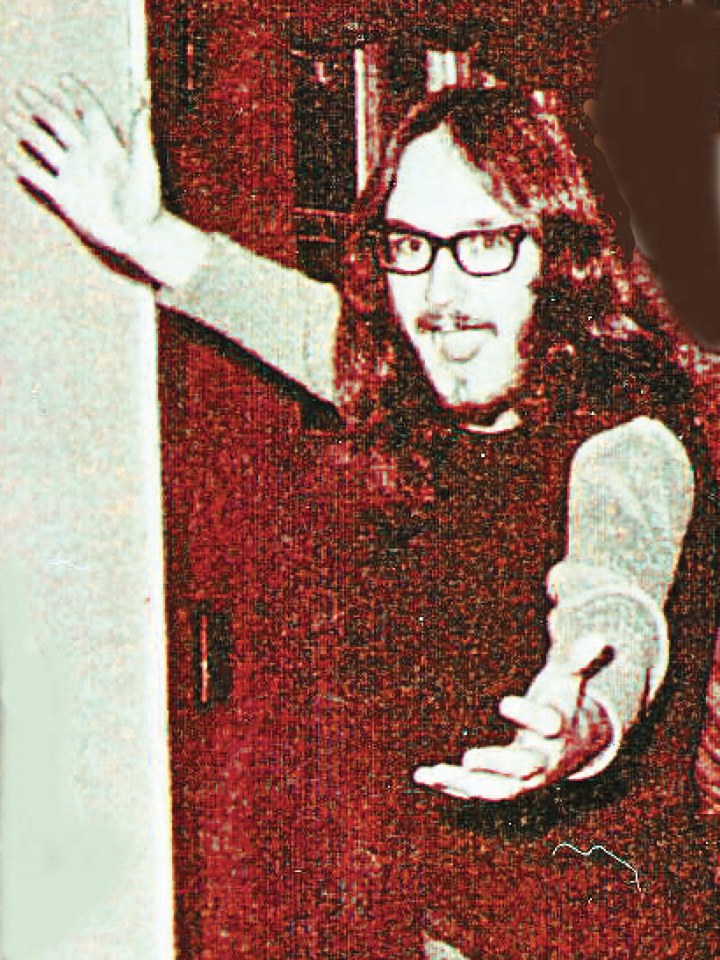
I notice on the liner notes that George Leemon is credited as the spiritual guide for your band. Can you give us a little insight into that?
GG: Well, we put that down because a lot of the groups back then, like the Beatles you know, were saying they had this kind of spiritual guidance. George was a wonderful influence. He was a close friend of mine and Jim Elwyn’s all the way through high school and he was a great, a really great soundman. He had a lot to do with us sounding great on stage.
I’ve actually been in touch with George on Facebook and hope to interview him at some point.
GG: He was in charge of our PA. It was light years ahead of most bands. It was simple but way ahead of what most bands had. I remember people saying they’d seen Small Faces or Jethro Tull and saying “you guys sound as good or better than them.” And I’d say it was the PA. You know George was so good.
Well, who were your influences?
GG: My influences were pretty varied. I was very influenced by blues music but I didn’t bring that to Farm. But there was a big blues revival in 66; or 67, and I got so into these old guys, John Lee Hooker, Muddy Waters, Albert King and I saw some of those guys. Then when I was 13 I saw The Who, and they were using a really small PA, almost like Farm went on to use, and man they were tremendous. That was a major, major influence. It turned me around. That might have been my biggest influence, but then in 1968 I got to see Jimi Hendrix and then I saw Pink Floyd and again they had a very small PA system. The sound was so good. I’ve just been a stickler for tone and good sound. But I was, you know, like the rest of the band influenced by The Beatles and Santana. And influences in blues, Santana. We didn’t worry about copying though. I remember, in fact, that we were decidely not interested in copying.
I notice on your album, there is a cover of “Statesboro Blues” but all the other songs are originals. Do you remember what was the first song Farm wrote?
GG: Our first original song that we did was called “Gone.” It was one I came up with the lyrics for very early on in our rehearsals. I’ve gotta tell you that album is a very poor representation of us because that album was done really early in our career and we were just starting to get the sound together. We were just getting out of high school and we were immediately into original songs.
Did you do any recording before the album?
GG: We had a lot of board taps. Not many bands had a console with two sound guys manning the console in those days. We did and we were able to make really nice board tapes. I remember listening to those and thinking “My God it0s coming out fantastic.” But all of those tapes burned. I’m just gonna take a wild guess here and say we probably had a good forty or fifty different original songs. I know we had a lot. “Yeah, those are just gone.”
Were there any Farm tapes that weren’t destroyed in the fire?
GG: There could have been. Maybe one of these days something will surface. Just any little thing would be cool. I have some live recordings because we did two reunion concerts, one after about 35 years and I’ve got about three of those songs mixed now. It’s a big job to mix that. My studio is so busy with people who come from around the world that I don’t get much time to work on my own stuff.
Did everybody get to play in the reunions? Was it the whole original band?
GG: It was our original band except our percussionist Steve Evanchik. He was an important part. That particular night showed me that Steve was real critical to our sound becaue he played congas, timbales and other percussion stuff and he really drove the group, much more so than most groups in those days. More like one of the guys from Santana, just really pushing the group. It was the original band except Steve, because I’m afraid Steve had had a stroke or something. He was at the show but he was fairly incoherent.
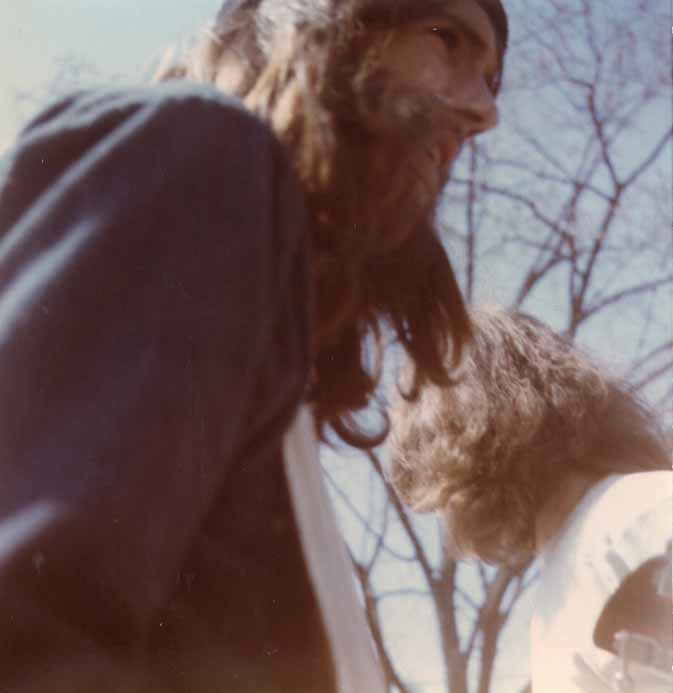
How did Farm go about writing songs? I notice on the LP the songs are credited to the band. How did the band go about writing and arranging the songs?
GG: We were just very excited about what we were doing. Remember, we were like 18 or 19 during our career. Steve might have been like 22. He was the older guy. We knew we had this thing going and it was by osmosis. I wrote lyrics down on scratch pads. There might be some around today. Del came up with some lyrics. I borrowed a couple of poems that I had known about from school days. Those songs, sadly they are gone. I’ll tell you right now, a lot of our best stuff was not on that record. Three quarters, more than that, nine tenths of our stuff wasn’t on that record. We wrote together because our rehearsals were really spontaneous and very entertaining. It was really fun to play. We had songs come out of most every session we had.
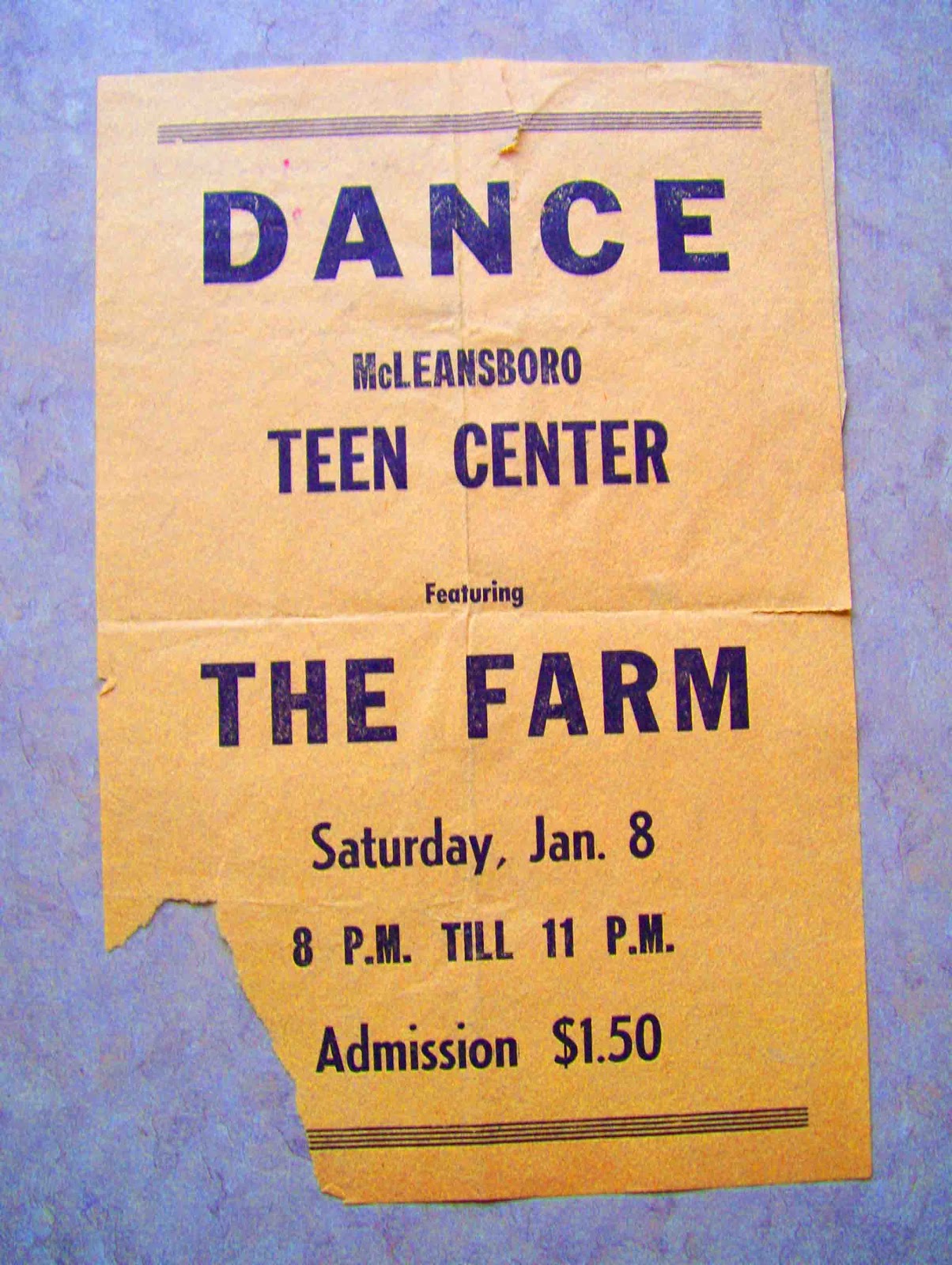
Did you open with some bigger bands? Or play with some bigger bands of the day?
GG: We may have. The only thing I can think of was Canned Heat. That was like a crammed auditorium. Those days were so different. I mean everybody was smoking pot like a chimney. That’s the only one I remember. There were some other theaters that were really cool with some bands that were touring. Let me think on that.
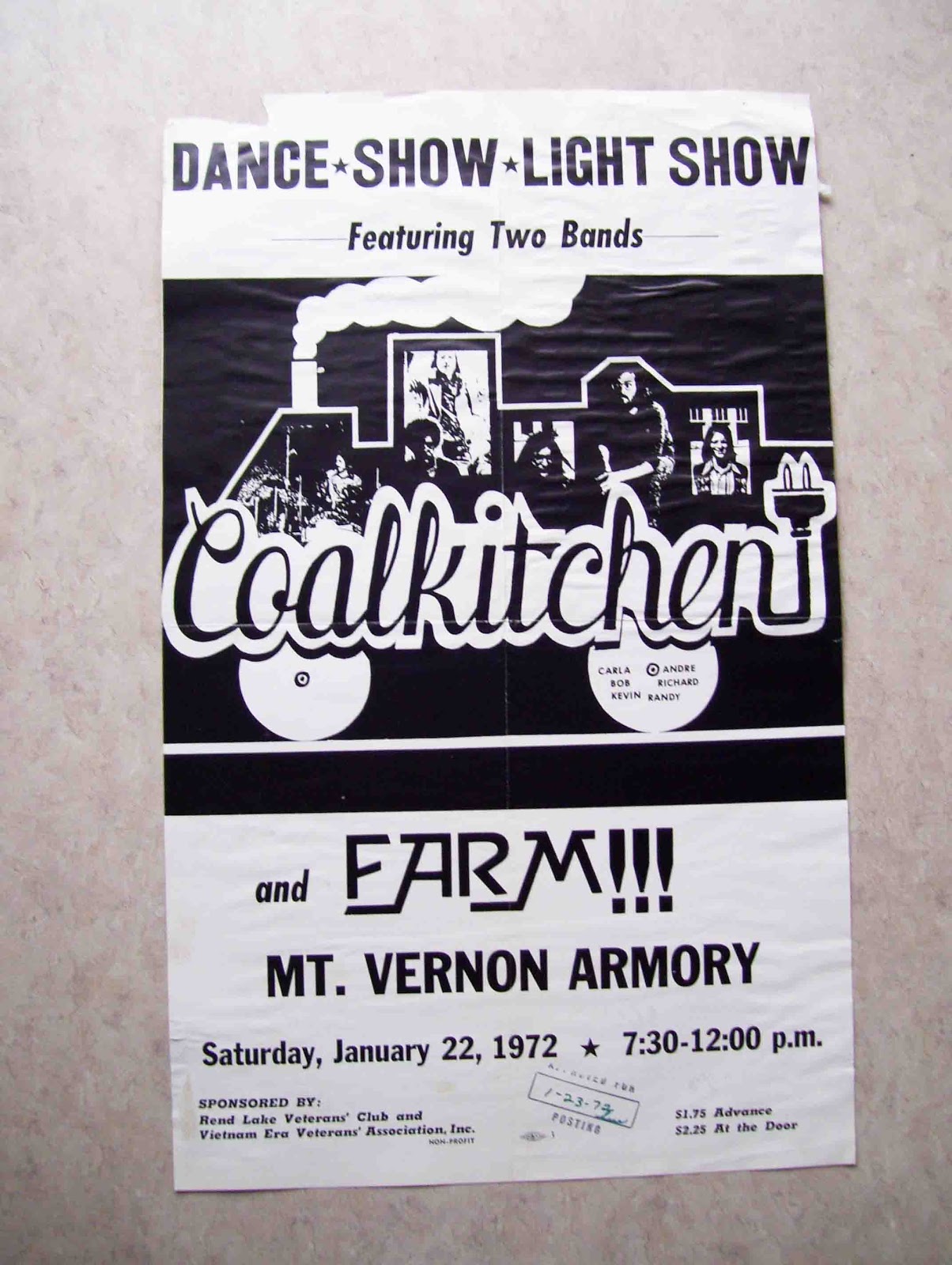
Getting back to the PA and your sound, what kind of gear were you guys using?
GG: Well, early on we used JBL speakers and drivers, later we had McIntosh amps. It’s collectors stuff nowadays you know.
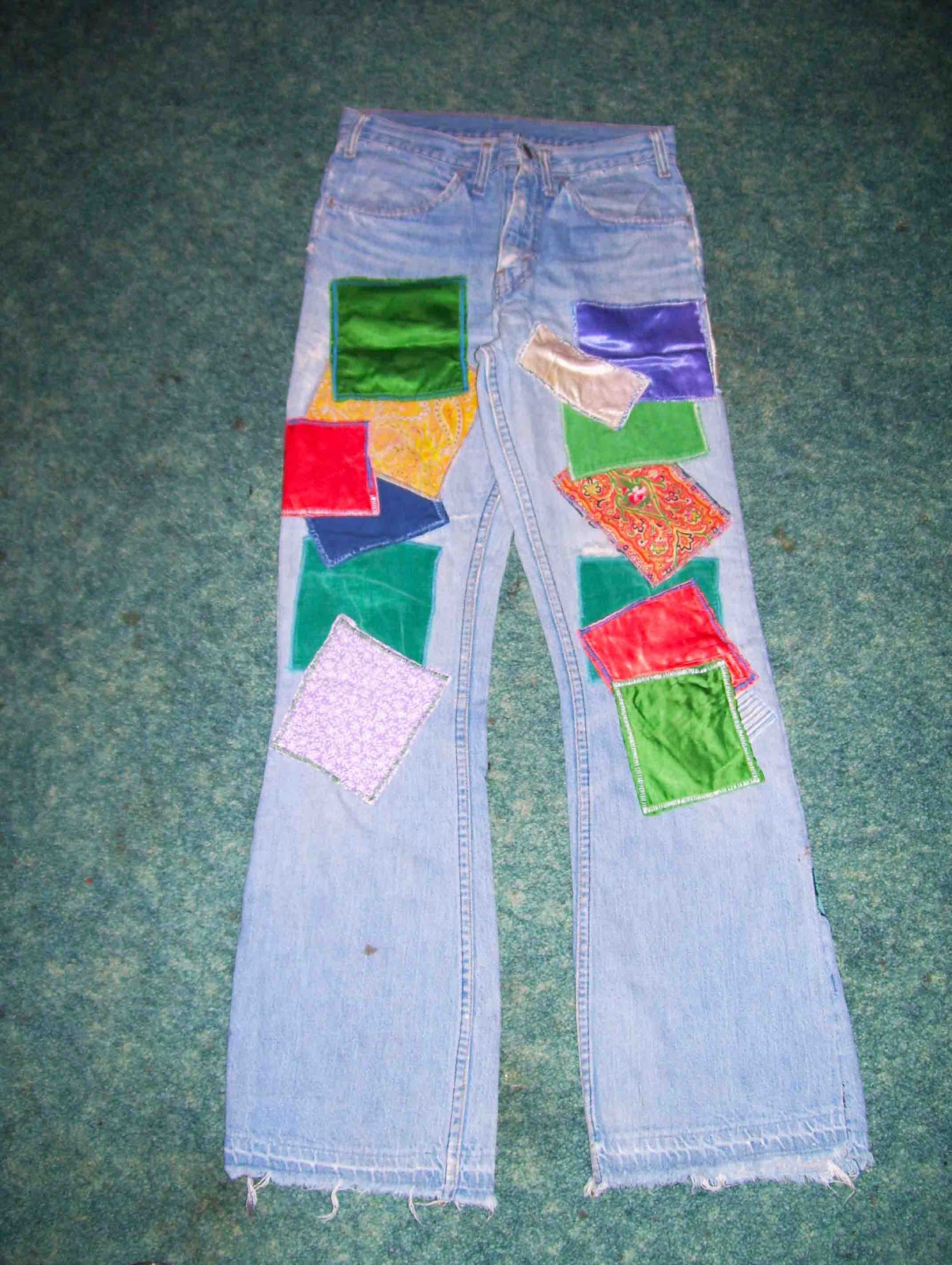
Where were you guys getting your gear?
GG: I don’t know. That’s stuff that George Leemon was handling. He was our soundman you know. I feel that George was just as much an asset as any of the members of the group because the sound system wasn’t as large as some of the touring groups, but it was of the quality of the really fine concert groups of the day.
The sound was kinda magical. What kind of guitar were you using at the time?
GG: I started out using my Fender Telecaster and then I went to, I had a lap steel, this really old lap steel that I slung around my neck and played it like a bottleneck guitar. It wasn’t on my lap. I had heard hardly anybody playing electric bottle neck in those days. Nowadays you hear it all the time. Back then the only guy I knew of was Ry Cooder. I heard him play with Taj Mahal. And I heard some of Duane Allman. I’d seen him live with a band called The Hour Glass and I thought they were just great. He really turned me on to the electric bottle neck guitar.
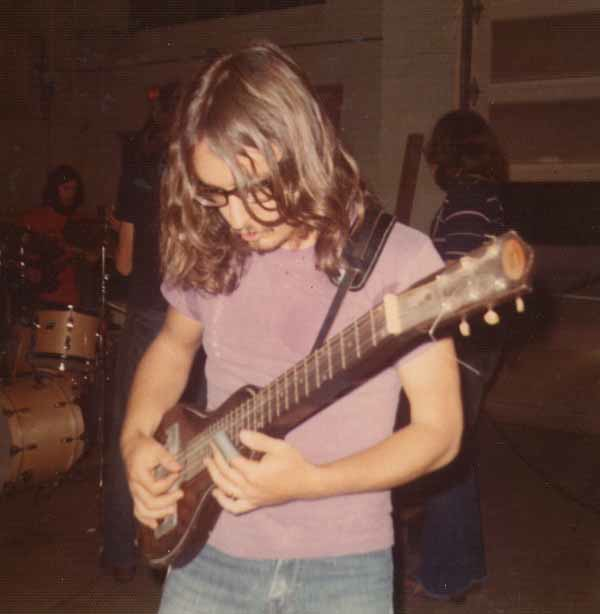
Is that why you guys ended up covering “Statesboro Blues” on your LP?
GG: I had been listening to it by Taj Mahal and I loved his version of it. I was so into Taj Mahal. On the first part of Farm I was playing the Telecaster and then I got a Rickenbacker which was a hollow body double pickup, a thin hollow body Rickenbacker 330. I loved that thing because we played fairly low powered tube amps that got mighty loud though. I used eight twelves and four tens and you can just about feel the sound all through your body. The Rickenbacker hollow body would really sustain well. I kinda preferred the Rickenbacker once I got it. With the guitars I was using a Sunn Sceptre tube amp, later teamed with a Magnatone Slave amp. I’ve got a couple of other Rickenbackers that I use for rock music cause I still play some rock.
So tell me, how long was Farm together?
GG: You know I’m a little unclear about this. I talked to Del Herbert the other day and he remembered having a rehearsal when they walked on the moon. That was July 21, 1969. He said we had been playing a little while by then. It wasn’t quite the band on the LP, that came together the first of May, 1971. The album was recorded I think in June of 1971. That’s a pretty accurate guess. Jim Elwyn and I had been playing since we were in grade school and then we took up with Del Herbert when we were in high school, so the three of us had quite a bit of experience together making music. The band on the record got together just right after I got out of high school in 1971. When we did the album most of us were 18. I had been out there gigging since I was 12 as had Jim Elwyn and during the warm weather we’d play two or three times a week.
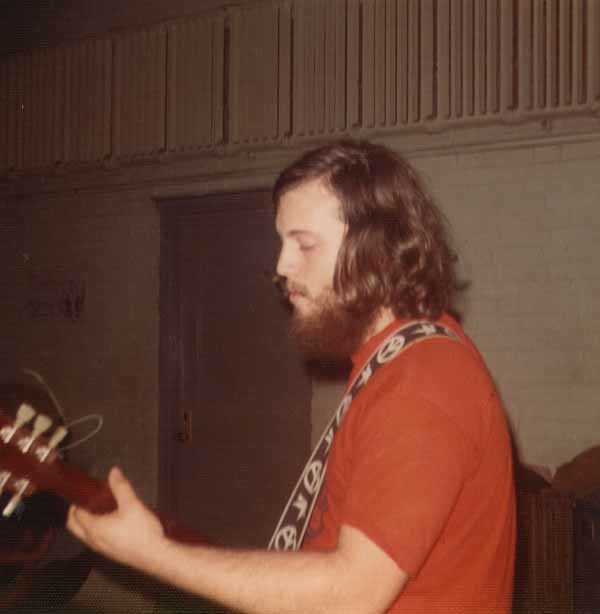
How did you guys end up in South Pekin, IL to record the LP?
GG: I wish I had a better story about that. George Leemon would have been the guy who made contact there. The guy who ran that studio told me, while I was in the control room, he said “Gary, I had R.E.O. Speedwagon up here last week.” I really liked them and he had some other groups come in who were starting to get pretty popular. That’s likely how George came in contact with Golden Voice Recording Studios.
Had you ever worked with the sound engineer there, Jerry Milam, before?
GG: I had not. But he was very very good. I’ve found out from conversations with Jerry that Chet Atkins respected him and Chet would send groups from Tennessee to record there because it was a lot lower cost. Jerry was one of the few sound engineers who knew what to do with a rock band back then. I remember our roadies started bringing our gear in and Jerry said “No, no, no, you can’t use all that gear.” We fought that, but I broke my gear down and just used four twelves and Jim just used one cabinet with two fifteens in an effort to keep the volume lower and to have better recording. Del borrowed the amp from the studio. He used a little Fender. I now know that using a smaller amp in recording it’s easier to get a good sound. Jerry did a great job of coping with the loud volume we recorded at.
How did you guys arrive at the songs you chose for the LP?
GG: My mind is a litle foggy about that but one of the determining factors was that was the first time we’d done a gig without our old lead vocalist. Up to that point Del and I had been doing a lot of twin guitar stuff like The Stones. The guy who sang didn’t get along with us as well as the rest of us so it came down to the songs that I could sing.
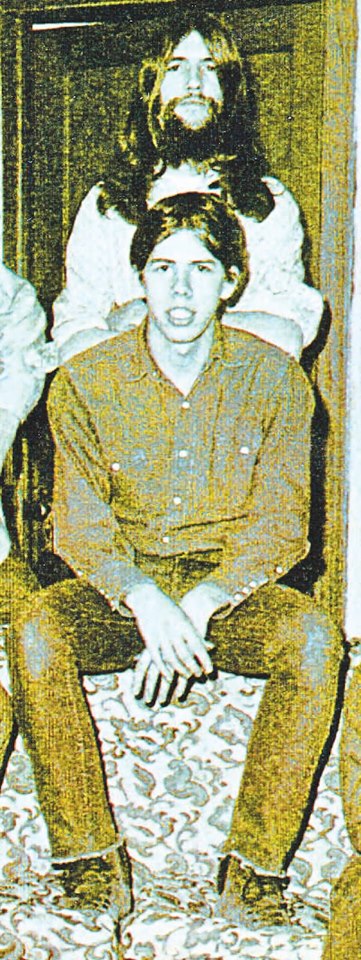
So it’s basically you singing lead on the LP?
GG: Yeah, it’s me singing lead on everything. Later on I had a little support from Del and Jim. From that point on our originals just really took off. But that was the first gig where I did the lead vocals. So that’s how the songs got chosen.
Your vocals seem to fit so well.
GG: Well, I thank you very much for that observation. I was mighty young. Listening now, I think I did fair considering how young I was but we did that album really quickly. We were on a tight budget. I can’t say exactly how long we spent on it. But I can say we only spent one day. Everything was tracked in a day and probably mixed that night.
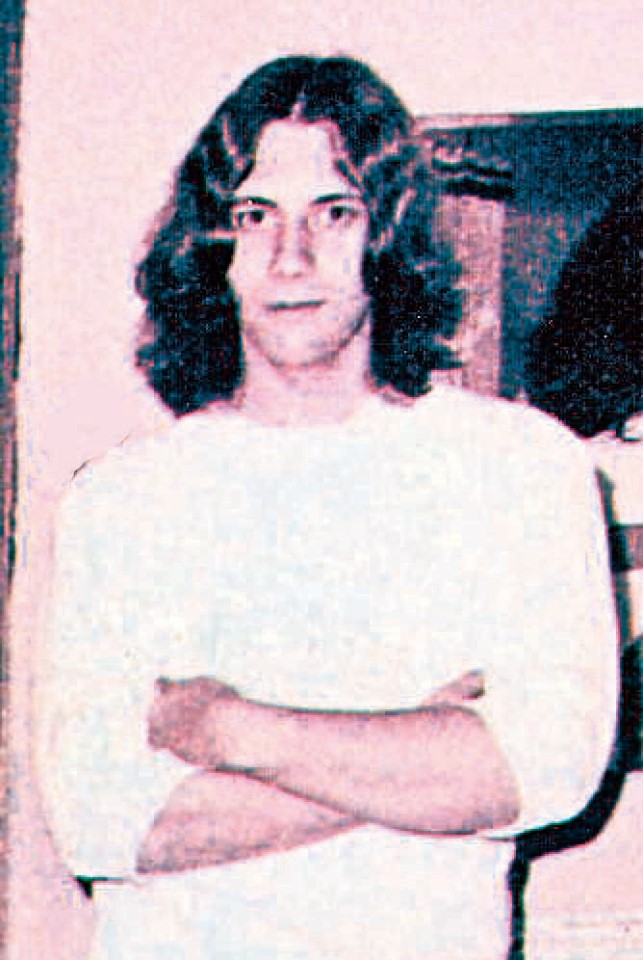
Were there any other songs that you guys worked on that didn’t end up on the LP?
GG: We just played those to my knowledge. Our repertoire was quite a bit bigger but we didn’t want our old lead singer on the record. We had decided we weren’t gonna have him any longer. Right after that record the band improved so much cause we really developed our own sound. We went away from the sound we’d had with our old singer. That was a more radio oriented sound that we didn’t even like.
The album doesn’t come off commercial, but it does sound FM radio friendly.
GG: Yeah, FM made it up. It still gets some play on FM.
GG: I’ve got a couple of funny stories Kevin, if you don’t mind?
No, no go right ahead.
GG: I’ve had this music store in Sparta for 25 years or so and back in about 1990 or 1991, a guy came in and looked around for a while. So I asked him where he was from. He said “Colorado Springs.” And I said “You mean Colorado?” And he said “Yeah.” Then he said, “You know I’ve heard there’s a really great rock group from Sparta, Illinois.” And I said “Who’s that, there might have been a few?” He said “A group called Farm.” I said, “yeah, that was my group.” And he didn’t believe me. He said, “No man, it was before your time.” I said, “How did you hear about them?” He said, “Well, they still play them on the radio. They had a really fine album. It still plays in my home town.” He just thought I was lying.
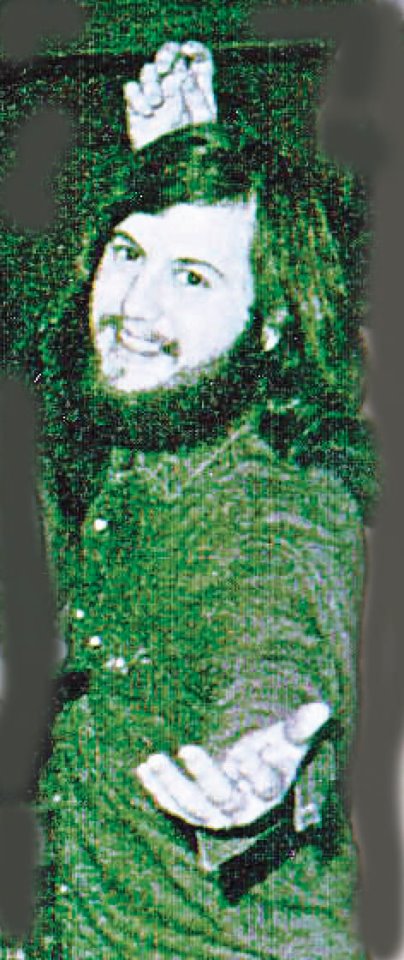
Can you tell us a little about the label that the LP came out on?
GG: Crusade was a multi-faceted place. They were a recording studio and they arranged a lot of manufacture for rock groups. That’s how we got them.
The cover art is really interesting. Is the photo from any particular farm?
GG: That’s George Leemon’s relatives place. It would have been in Randolph County, Illinois. It kinda fits, don’t it?

GG: Kevin, I’ve got another one for you. I was hitchhiking, dressed like I was dressed like any summer day. Kinda like Neil Young, you know, pants with a couple of patches on them. I get picked up by about 4 or 5 young folks, a little older than I, they were probably in their early 20s. And just between you and I, they had a joint going, and then I got in and they got another one going, and they wanted to know something about me so they said, “Hey man, who are you?” I said “well, I’m Gary Gordon.” And they said “What do you do man?” And I said, “well I play in this group Farm.” And simultaneously everybody in the car said “Man, you’re full of shit. Farm’s famous.” And I said, “Well, that’s what I did.” But they didn’t believe me. They thought, well we got a lot of FM air play back then, and I was on an interstate highway, back then you could hitchhike on an interstate. I guess they thought we were famous enough I ought to at least have my own car. “Ain’t that somethin’?”
Where was it they picked you up hitchhiking, Gary?
GG: I was on the far side of Mt. Vernon. I might’ve been, I don’t remember for sure but I might have been 90 miles east you know. Over toward Indiana, something like that.
Did you guys get any offers from labels to pick the album up?
GG: The only offer we got, and we were only like 19 or 20. You know your business sense then isn’t like it is when you’re even like 30. But the only offer I remember, I signed with K-Tel, along with I believe all the other guys from Farm. K-Tel picked it up or at least had the rights to it.
I know that in 2000, there was a reissue on vinyl that came out of Italy, and I think I already know the answer to this question, but did you guys sign a contract with Comet (Akarma) Records? Have you seen a copy of the LP?
GG: I’ve heard about it several times and talked to people who had copies. But I’ve never actually seen a copy.
I’m gonna assume none of you guys saw any money coming out of Italy?
GG: No, none. I was talking to a guy in about 1996 who was interested in putting it out in America, but it never came together. I think it might have been called The Wild Places or something. To best of my knowledge, there was never a legitimate reissue, just the remastering that I put out.
“Jim Elwyn had a 335 watt Fender bass amp, which would be like 3 Marshall heads used by John Entwistle of The Who. It would blow your pant legs.”
So, 3 Chord Records is your own label?
GG: I wanted a bar code. The reason that’s 3 Chord Records is that’s a man I’ve done business with for years and he’s had some rock re-releases and records. He’s the guy who does manufacturing for Pink Things and other people who have done work at my studio. He’s a friend of Jerry Milam’s. Rather than put it out as a brown paper bag record I asked him if we could have a proper bar code and he said, “yeah, cool.” My son helped me a little with that remastering. I wanted to try to get the bass line even and see if I could bring out a little more of the piano and rhythm guitar. I just tried to improve the sound without overcompressing it or anything.
When Farm played live what songs got the people up dancing and moving around?
GG: I have a recollection when I was using that slide you know, cause Del was such a brilliant 6 string lead player, far beyond what you hear on the LP. Man we could go on with that Hammond Organ through Leslies and I played slide guitar in a very unusal fashion and I remember people would just press up against us. They were excited. So that along with the volume. Jim Elwyn had a 335 watt Fender bass amp, which would be like 3 Marshall heads used by John Entwistle of The Who. It would blow your pant legs. The power and clarity got people. One of the songs that comes to mind was called “Honky Roll.” We had one called “The Genius Spider” which had really good twists and turns and jams in it.
Where did the fire take place that destroyed all The Farm recordings?
GG: I’m not certain of it, but one of the roadies had the tapes at his home and that’s where they burned. Yeah, 40 or more recordings by George and the original multi-tracks from the LP burned. When I remastered the cd I had to go from the 2-track, the stereo master, otherwise I would had a chance to remix from the original eight tracks.
Besides Canned Heat are there any other bands you gigged with whose sound meshed so well with Farm?
GG: Bruce Brown, who was Charlie Daniels’ guitar player for years, had a band that we gigged with several times and that was a real good match.
Do you have a recollection of the last gig Farm played before you called it a day?
GG: Nobody’s ever asked me that one. I have a pretty vivid memory of a gig at SIU-Carbondale and that was a great gig. That may have been one of our last. It seems like most of our gigs we were hitting on all cylinders. I don’t remember being bothered by any of our gigs. We just all enjoyed playing together so much, so maybe that’s why none really stand out in my mind.
What about the reunion gigs Gary? When were they and how did they go down?
GG: We had our first reunion gig in 2007 in Mt. Vernon at a club called The Living Room. The place was packed. People came from all over the country to see the gig. The second reunion was in 2009 at the Sesser Theater, in Sesser, IL. The first reunion was recorded both in multi-track audio and video. The second reunion was also recorded in audio and video. At least one song is available from ITunes from the 2007 reunion gig, the track being “Gone” the song that was the first child of Farm. Gary is working on mixing more of the live recordings and making them commercially available.
What’s Gary Gordon been up to since Farm?
GG: At the end of Farm I took a look at the pile of gear we had. You know there was a lot on stage. And about that time The Nitty Gritty Dirt Band put out the “Circle” album and I really loved that kind of music. So I just dove right into bluegrass and had a professional career for many, many years, playing all across the country and overseas. I’m in folk music these days and I produce a lot of records. I have made records as part of The Gordon’s (with Gary’s wife), I’ve made a couple of solo (blues) records, I’ve travelled to Ireland to produce a record for the man who sings for The Chieftains, I do a lot of record production at my own Inside Out Recording Studios.
Are your post-Farm recordings available? Where can readers get records by The Gordons and other records you’ve made?
GG: My website has records, tv footage, video, everything is there. I look back at The Farm days and I thank the musicians I played with because they were so skilled, and I thank George Leemon because he kept us sounding good. Because of that I’ve been able to help other artists out.
Are you still in touch with the guys from Farm?
GG: I saw Jim, the bassist, 2 days ago. I spoke with Del 3 days ago. I occasionally speak with the other guys so I feel in touch with them. Sometimes a couple of years will go by, but they’re never out of my mind. You know it’s funny you use the word magic, it was real. We were very creative. I can say that because today I was sent a record from a musician I’ve been working with from Sweden and listening to it I was able to say I did my level best. I look back and I think “you know I think Farm was on a level with these musician.” It was real. Everybody was trying to do their best.
What’s the name of your studio and how do people contact you to record there?
GG: The name of the studio is Inside Out Recording Studio, Sparta, IL and the best way to reach me is via email at: gatormusic@hotmail.com and online at my website.
What’s the name of your music shop in Sparta, IL?
GG: Alligator Music and you can find it on Facebook.
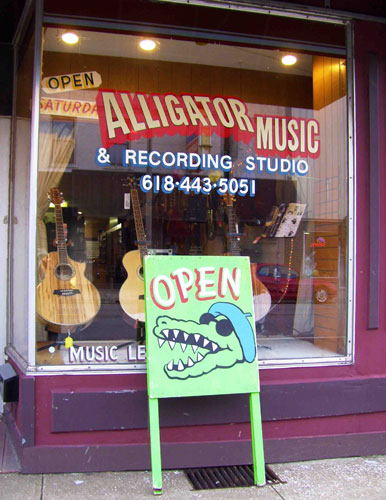
Gary, I can’t thank you enough for taking so much time from your busy schedule for the benefit of Psychedelic Baby readers. From myself, owner/editor Klemen Breznikar, and all Psychedelic Baby readers worldwide, thank you so much. It has been a real pleasure talking to you.
GG: Thanks a lot Kevin. Likewise, I really appreciate the work you’re doing. Take care and have a wonderful evening.
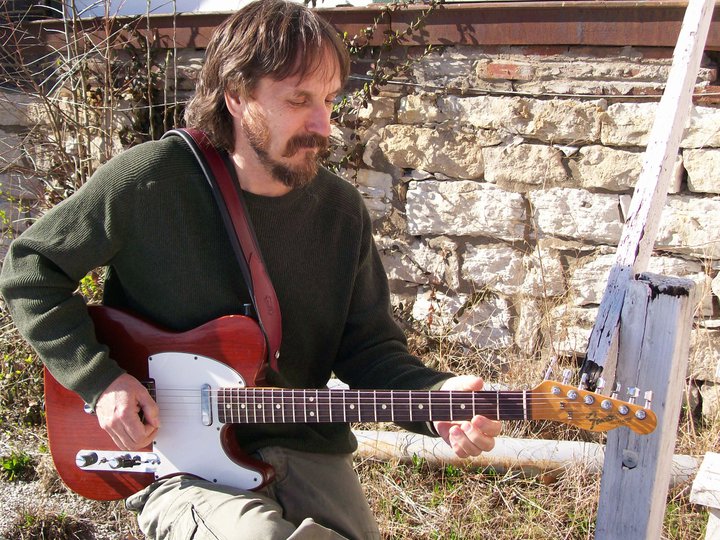
A very special thank you to Mr. Randy Nagel for arranging the interview.
George Leemon was their sound man and manager of Farm. Here is our conversation with him about his recollection about the Farm.
Hi George, thanks so much for taking time out of your busy schedule to share some of your recollections of time spent as sound man and basically manager of Farm.
George Leemon: My pleasure.
How did you become involved with Gary and the rest of the members of Farm?
GL: I knew Gary (Gordon) and Jim Elwyn (Farms’ bassist) from school in Sparta. I played keyboards so I went to a lot of the gigs that they played under various names throughout school. Once we got our licenses to drive, we started going to surrounding towns and met Del Herbert (lead guitarist) when he was driving age, 16, because he was dating a girl from Pinckneyville and we went to Pinckneyville a lot.
What year was this?
GL: Well, probably 1967, maybe 1968. I had gone out on a date with Betty Joe, the girl from Pinckneyville, also, but she went out with Del and they kinda hooked up.
On the Farm LP you are listed as the spiritual guide of the band, what was that all about?
GL: They wanted to give me some kind of credit as I was a big driving force, putting the money up for the band’s recording and pushing the band. I was out trying to book gigs, I got the album played on KSHE, an FM station in St. Louis, In fact, New Years Eve 1971, the album had come out earlier that year and KSHE started the New Year by playing “Let That Boy Boogie” as the first song they played that year. I was an electronics guys as well and I began tinkering with amps and I built a setup for Jim Elwyn since the one he had just wasn’t any good. I also built a power amp for Gary to go along with the amp he was using to give him a little bit more power. So I was deeply into the electronics part and I was also always promoting the band. I drove all over the place to get them gigs. There was a station in St. Louis, I can’t remember the name, but it was a kind of underground station in a house and we set up in a basement and Farm played live on the station. It was just phenomenal!
One thing I remember about Farm was that their PA system was just outstanding.
GL: For the time that was just the best thing around. We modified the amps so that the low end response was much better and it put out around 800 watts RMS with sustainable peaks at around 1000 watts, so we had about 500 watts on each side of the PA. But more importantly as a musician myself I mixed the music differently than most sound engineers. My idea was to pull volume down when someone was going to play lead rather than constantly pushing things up to make them stand out. We had very little in the way of effects, so it was pretty straightforward although I did buy an echoplex which we used toward the end. I was continually buying equipment and always kept a healthy PA system.
So you were pretty well with the band from start to finish?
GL: Yeah, pretty much. They were already playing out when I joined, but I had a Sony reel to reel tape recorder which I would bring out to shows and I’d set up a couple of microphones and record in stereo to give them an idea of what they sounded like. That’s what I did initially.
You were also involved in the promotion of the band. Can you talk a little about that?
GL: Once the album was pressed we had plenty of copies to take around and I would drive out constantly, all over the place. I would try to get it played at all the radio stations and they were pretty receptive to a band from their area that had an album out, so it was pretty cool. Also, I’d drive around and try to get gigs. That was a difficult process at that point in time because everybody wanted a band that was gonna play Top 40 songs but we had some success at like the Elks Club, the Lion’s Club and places like that.
Were you involved in obtaining the gear that the band was using, like the guitars and drum kits and things?
GL: No, I didn’t help them select gear, just build and repair. Basically if it was broke, I was there to fix it. As far as amps go, I was constantly trying to come up with a better design. For example Gary’s amp sounded too tinny, so I built him a 100 watt amp that we carried in a box, a cardboard box. I didn’t know how to build a wooden cabinet or anything so we carried it in a box and it sounded great, although one time we were driving to a gig and the box fell over, and things came apart, so we got to the gig, got things set up and got the mix going, and I sat there with my soldering iron and by the time they took their first break I had it back together and he had full power again.
How long were you involved with the band?
GL: From 1970 until they broke up. I went up to South Pekin with them to record the album. I sat at the mixing console with Jerry Milam, the recording engineer when he was recording them. I was very very nervous because it was a lot of money to put out at the time and we had no idea what was going to happen. When I was working with Styx, as keyboard tech, later in the 70s I made a point of introducing myself to all the promoters around the country and one of them based around the St. Louis area had been hunting and hunting for Farm because he wanted to book them on a major tour. He heard the album on KSHE FM and was trying and trying to find the band but we never made contact. That could have put the band over the top and led to a second LP.
How much money did the recording in South Pekin cost?
GL: I can’t remember exactly, but by todays standards it was cheap, $2000, maybe $2,500.
Do you remember how many albums were pressed?
GL: I believe it was 1,000. And pressing cost about the same amount, $2,000 to $2,500. We had them pressed in Flora, IL.
How was distribution of the LPs handled?
GL: It was just all word of mouth. We handed them out, tried to sell them at gigs, etc. At one point a guy recorded the album onto tape and people realized they could sell bootleg copies of the LP on cassette tape. That was detrimental to album sales.
Can you give us an idea of how many songs Farm recorded besides the five included on the LP, songs recorded live or at practices?
GL: Not that many. I’ve got maybe three or four songs live that actually came out okay and we saved. Tape was expensive so if the songs didn’t turn out right we just recorded over them. Which was terrible but we didn’t have the money to buy reels and reels of tape. All of these are songs that weren’t on the album. “Ingenious Spider” and “What A Mess” are two that come to mind.
Have any of those songs survived?
GL: I think they may have recorded “Ingenious Spider” at Sesser or Mt. Vernon, at one of their reunion gigs, which were both recorded.
Are any of the tapes still in existence? Gary said that most of the recordings were destroyed in a fire including the multi-tracks from the LP.
GL: No, well I think I still have one recording from a gig at the gymnasium at Sparta High School so it’s pretty echoey. That’s the only one I’ve got and you know it’s so old the mylar is falling apart. It’s not even worth transferring to CD. It’s terrible because when everything was cooking they had some really nice recordings. Like the night they backed up Canned Heat in Springfield, IL at a concert. That night everything went relatively flawlessly. Del’s amp blew a tube which it always did and Canned Heat’s roadies were there and they had him plugged back in within a minute and they went right on with the song. Bob Hite, the lead singer of Canned Heat sat down and talked with us and said “you guys are really good and I’d like to use you guys on the road to back us up.” We thought at that point, we were really gonna be going places. Naturally, Canned Heat broke up just shortly after that and of course that sank that idea. Their lead guitarist was heavily into drugs and he was late showing up for the show and was so drugged up he could hardly play. It was terrible. That was a very monumental gig for Farm.
That was the gig that stuck out in Gary’s mind. I was wondering, can you think of any others that stick out in your mind?
GL: Certainly. Certainly. We played down in Carbondale, IL at one of the big community buildings down there. We also played outside in the beer garden of Merlin’s (a Carbondale bar) and then we played at the university, SIU-C. We had a huge turnout. If I remember right, that was the last gig Farm ever played.
I had asked Gary about Farm’s last gig and that one (SIU-C) was the last one he could remember.
GL: Yeah, that was the last one.
Do you remember, was Farm headlining on that gig?
GL: Oh yeah. Definitely, yeah.
One thing I had wondered. Was there any interest from major labels to pick up the album?
GL: Not to the best of my knowledge. However, if we had hooked up with the promoter from St. Louis then there would have been a good chance. But by the time of the gig at SIU-C money was a problem, you know nobody had any money. I wasn’t working at that point.
“I put my heart and soul into it.”
It sounds like you were the seventh member of the band George.
GL: Pretty much. I put my heart and soul into it. At that point in time, 1971, I got my draft lottery number and it was 18. The Viet Nam War was raging and I just lost it because that was the last thing I wanted to do, you know, go over there and get shot. I moved out to a little house outside of Ina, IL and changed my name to avoid the draft. I was going under the name of Ben Johnson and I couldn’t work so I didn’t have much money.
One thing I asked Gary, the cover of the album, he told that was some family members of yours.
GL: Yes, we had a glass negative that we found at my grandma’s house. The photo was taken from a farm about halfway between Sparta and Pinckneyville. I don’t think the house is standing anymore, but we actually went out to it, and yeah that was some family members of mine on my mother’s side.
It just kills me that 28 minutes are all that remain of Farm’s recording career.
GL: Yeah, we had a lot of other good songs. When Farm went into the studio they didn’t tell their original lead singer, they wanted to do it without him so they could only do the songs that Gary (Gordon) sang. Songs like “Ingenious Spider” which includes an incredible bass solo by Jim Elwyn couldn’t be recorded because Gary didn’t sing it. They had a lot of other really good songs that are just lost.
Can you remember where the master tapes were when they burned?
GL: Up near Flora. The band stored them there. It was tragic, but at the time they burned they were probably in a very deteriorated condition because they weren’t in cold storage, they were just sitting on the shelf and they got really hot in the summer and were probably already beyond usage.
Farm played a couple of reunion gigs, one in Mt. Vernon and one in Sesser. Were you able to attend either one of them?
GL: I was not. It was my intention to fly back from California but I was just covered up in work, so it didn’t work out that way.
What are your most vivid recollections of Farm, George? Are there any moments that really just pop out in your mind like “wow.”
GL: Did Gary mention the festival at Bull Island, Indiana? (response from me: “no”). We went there. It was a disaster. I mean it was on an island in the middle of the Wabash River. There was a motorcycle gang from Carbondale called the “Boneshakers” and they were, you know, bad ass, riding choppers and everything and they came up on us as we were sitting in this long line and they escorted us in. They cleared a path, cause there were 40 or 50 motorcycles in front of us, and we followed them all the way backstage. There were all these choppers, separating all these people, and an old farm truck following behind them. A big box truck with me driving it being escorted right backstage. It was pretty cool. The very first thing that happened, a guy staggered up until he turned blue and collapsed right in front of me. I gave him mouth to mouth resucitation and we punded on his heart until the paramedics got there and basically saved his life. He’d od’ed. Somebody sold him bleach as heroin and it stopped his heart. That kinda how that whole thing went. We went backstage and we unpacked our gear and were all ready to set up, when the stage manager came over and said “I’m taking over, nobody is playing except top acts from now on.” We had all our gear ready to put on stage and then got pushed back. And of course there were 22 wells there, water wells, and only 2 of them worked so the people were just going nuts and there were 500,000 people who needed water, and there wasn’t enough food or portapotties or anything, so it was a horrific situation. I saw that everything was getting out of control, all the big acts were getting out by helicopter. A lot of big bands were there, like the Jefferson Airplane, and all these big bands were in their trailers behind the stage, there were lots of huge semi tractor trailor trucks full of gear. But things went sour and the crowd set the stage on fire, and I jumped in the truck and said “I’m gettin’ out of here.” We got the gear loaded up and I put the pedal to the metal and got there.
So Farm never actually played Bull Island?
GL: No we didn’t. You know, they wanted to stick around, and I was like “we can’t stick around, there’s all this gear.” So I pulled the plug on that one and we got the gear out of there. The crowd broke through all the barriers and burned all the trucks back there and all the gear. It was terrible.
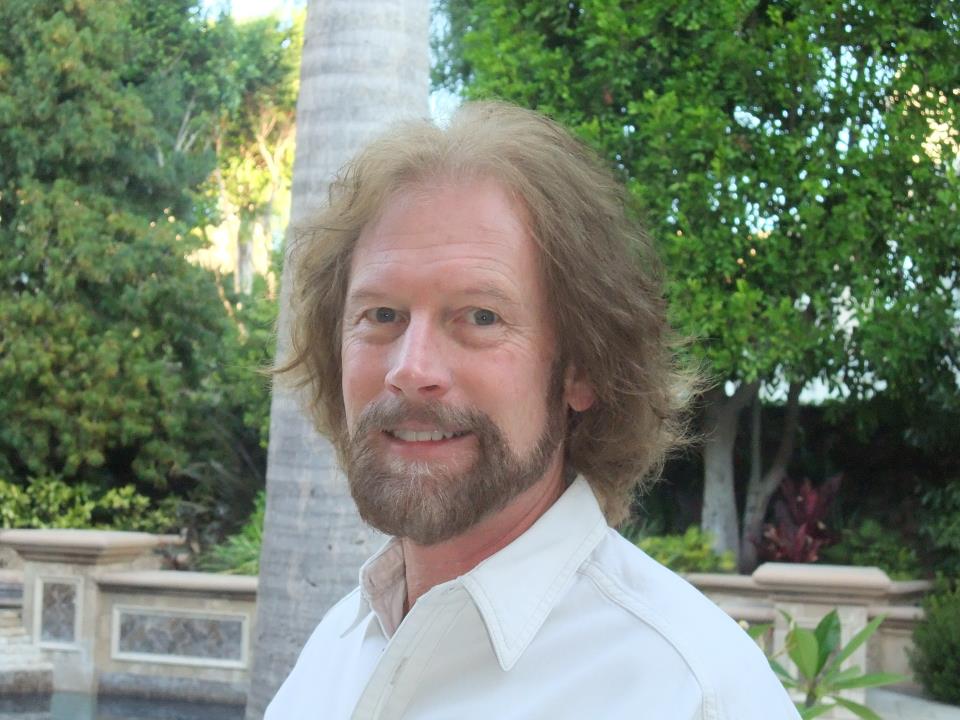
I really appreciate your recollections of Bull Island. That was one thing Gary had not mentioned. I cannot thank you enough George, you have added so much texture and color and flavor to what Gary had given me. I can’t thank you enough.
GL: As far as me, I haven’t done a lot musically the last couple of years, but I did release a studio cd with a band here in Anaheim, CA last December. It’s progressive rock, with lots of keyboards. I do have a few cds of “Purge” the band I recorded in Illinois with Jim Elwyn and Jim Beattie in 1975. That one never did get released. We broke up before that one got released. Also, I started working with Styx in January, 1979 as an electrician, then in June of that year I became their keyboard roadie. The very first gig, up in Wisconsin had 25,000 attending. They had me soundcheck the keyboards and the crowd charged the stage. I spent the next 5 years with them. Those years were a highlight of my life. I got married in 1986 and had to get a real job but I still play occasionally at open mic nights and play keyboards at home.
Thank you so much George. I know our “It’s Psychedelic Baby” readers will appreciate your great contribution to the Farm saga. Thank you so much.
GL: Thank you Kevin.
– Kevin Rathert
Farm Discography:
Farm s/t LP released 1971 on Crusade Enterprises catalog #LPS-465
Bootleg reissue by Akarma Recods, Italy on 10″ vinyl catalog #AK2012
Official remastering and cd release by Gary Gordon on 3 Chord Records (no release date or catalog #)
Track listing: “Sunshine In My Window”; “Cottonwood Woman”; “Statesboro Blues”; “Jungle Song”; “Let That Boy Boogie”.

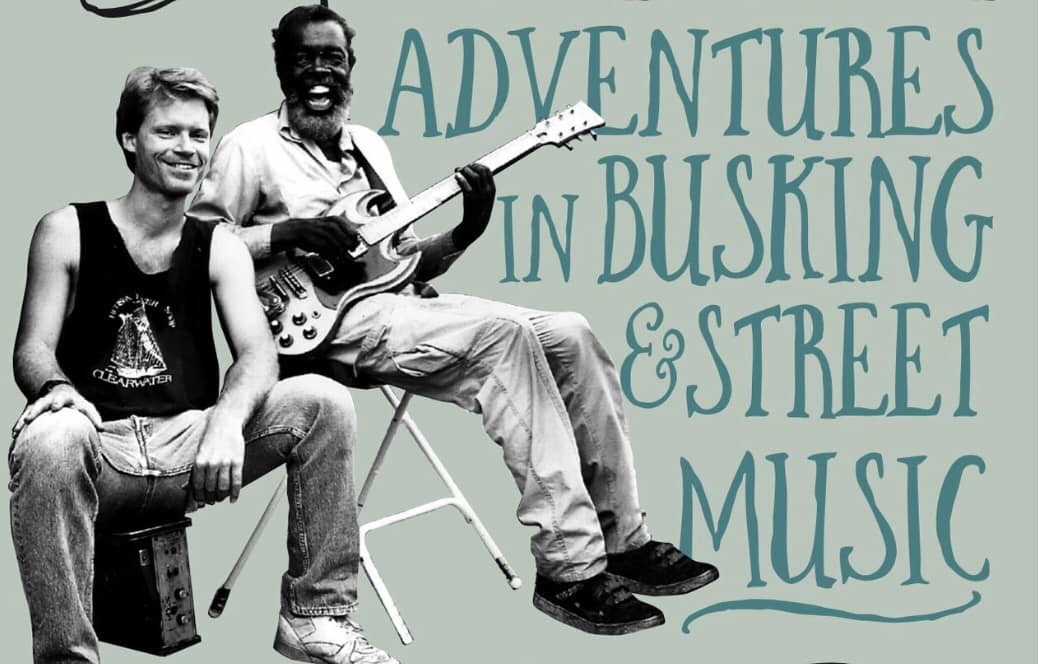
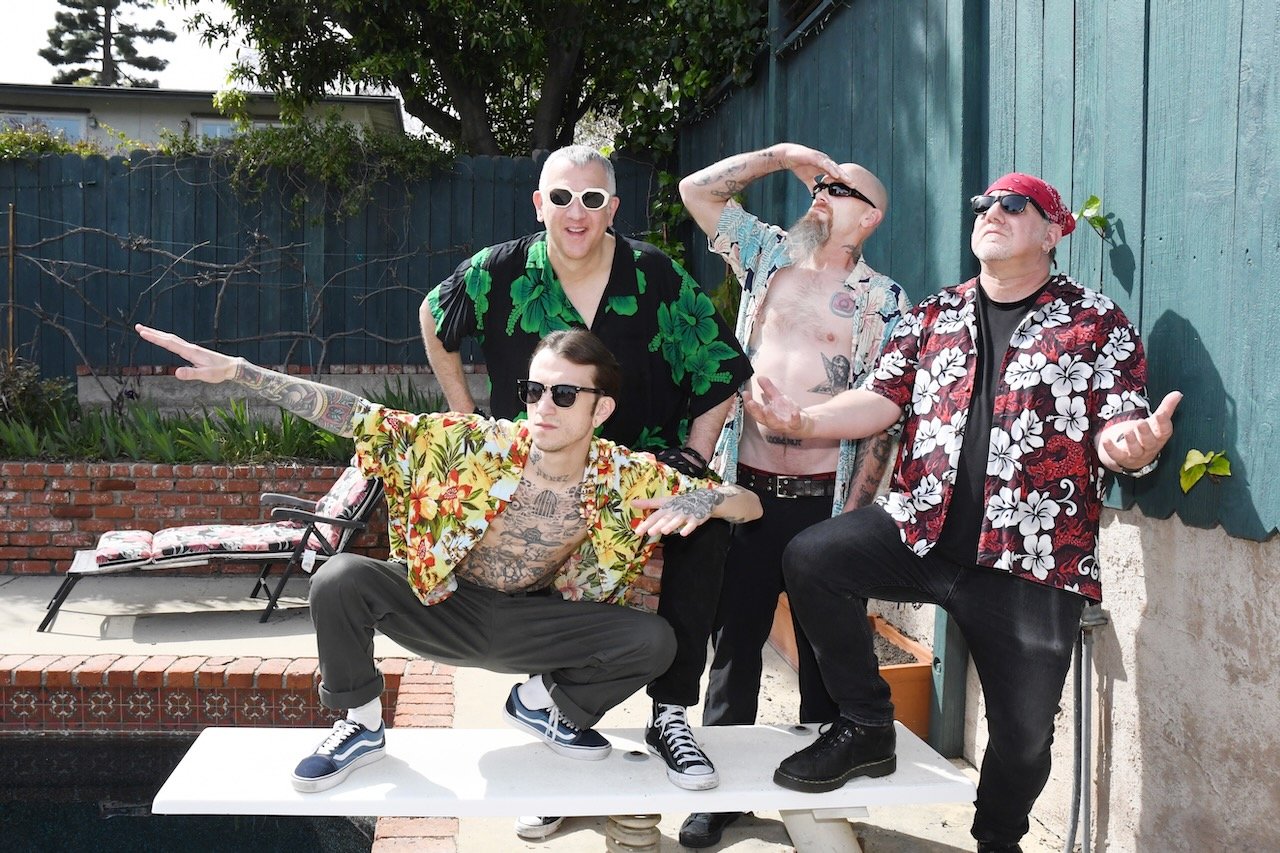
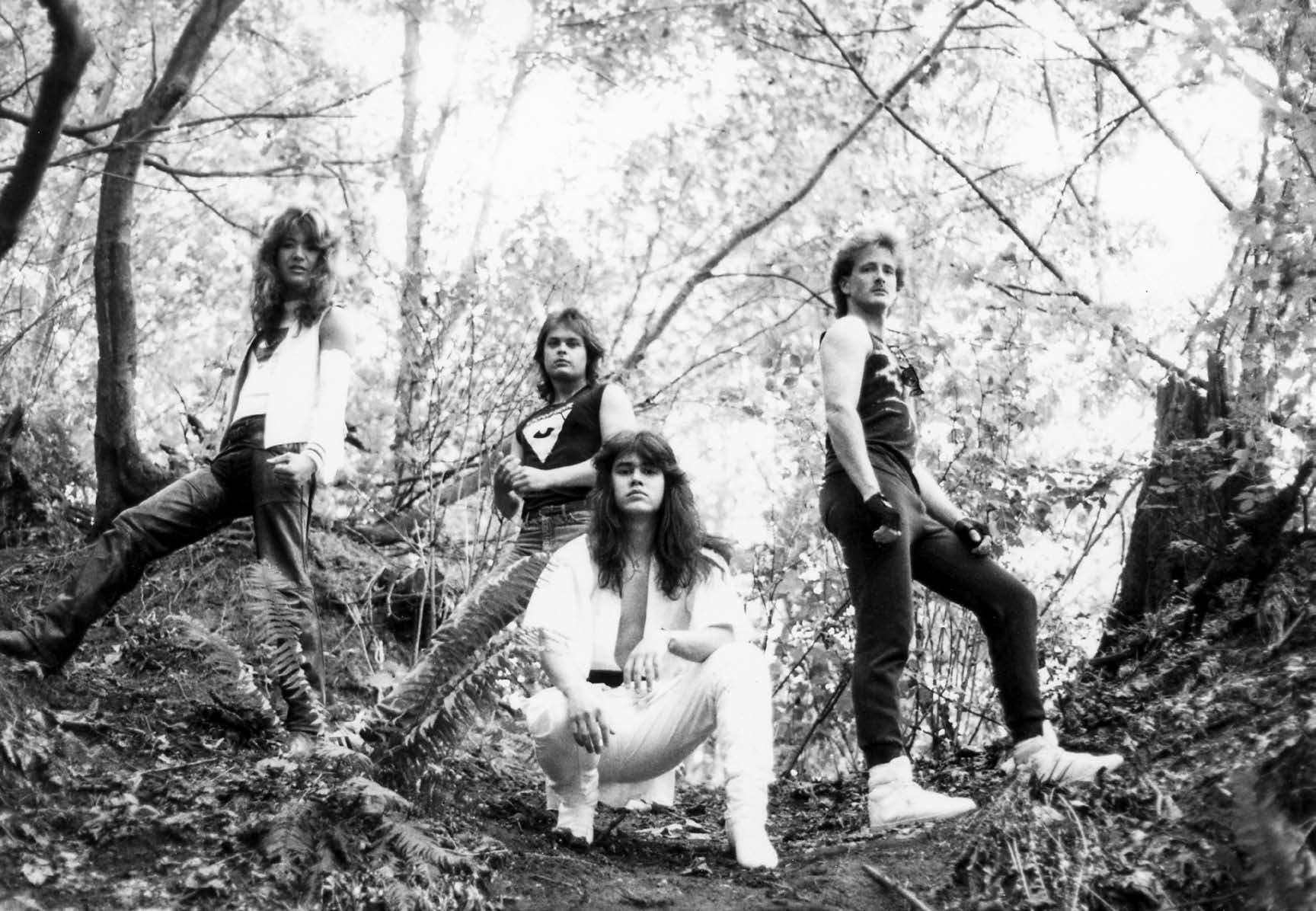
I'm from Mount Vernon, and I remember Farm. Thanks for posting these interviews. It brought back some great memories.
The pleasure was all mine. Thank you for the kind words. BTW Guerssen Records, Spain is reissuing ‘Farm’ on LP and CD, available August 12, 2022.
I am from the S.F.Bay area,growing up listening to this type of music.Discovered this band on u-tube.Awesome sound.I am surprised i have never heard of them until now.I would love to some how get this Record.
Hi, Guerssen Records, Spain is reissuing ‘Farm’ on August 12, 2022 on LP and CD. It sounds incredible and the insert/booklet are designed around this interview.
I'm from Mt. Vernon and lived down the street from Mike Young when I was kid. He had a band called Nebula after the farm days that was good to. I more hard rock sound but kicked ass for those days! We would sit outside and listen to him and his friends practice at Mikes house, you could hear them a block away at times, the great old days!
Yes we practiced at my mom's house for a long time. On occasion we would pull the gear out of the basement and play outside under the carport drawing a mass of spectators. Try that in today's world.
Mike Young
Hey
Will anyone from the Farm band play at gigs in Mt.Vernon during 2017?
I have the original album and would enjoy a live concert!
Bob
Is there any way a bod can get hold of a copy?
Nick, Guerssen Records has reissued ‘Farm’ on LP and CD. It is available from Amazon, Forced Exposure and ImportCDs among others.
I really appreciate the interviews. I have family all over this area of Illinois. I was born in Belleville (1960), My parents were from Chester (Randolph, County), I have cousins who grew up in Mt. Vernon at the time of Farm’s prime, and I have an uncle from Sparta. My mom, now 92, always said, “those boys from Sparta could dance really well.” So glad for the history and and the mention of Bruce Brown. We now live in Nashville, TN and have known his wife for a very long time. Small world. Please reunite and come play Nashville or better yet, play Carbondale one more time during the solar eclipse in 2024.
Just a thought.
Tom G